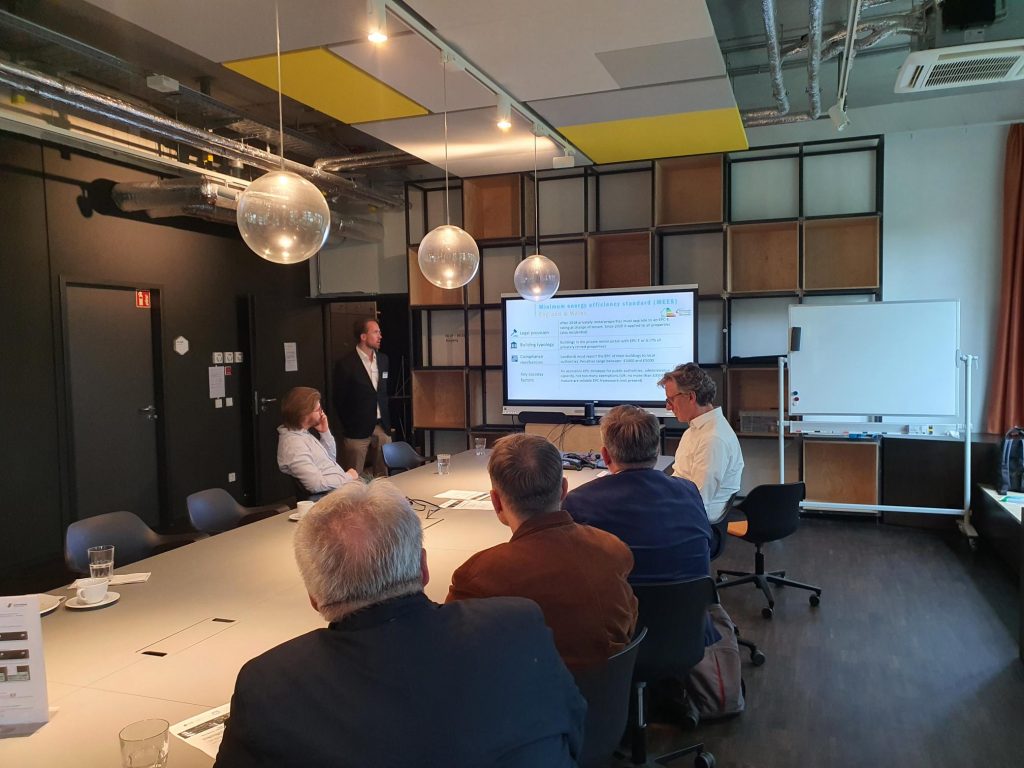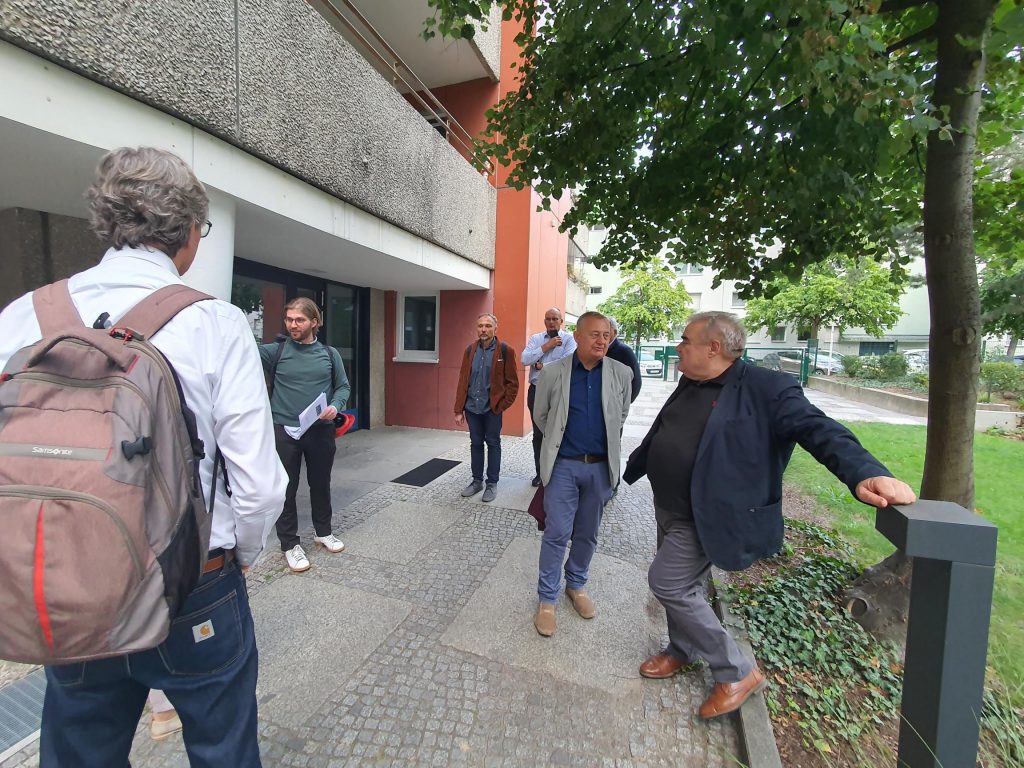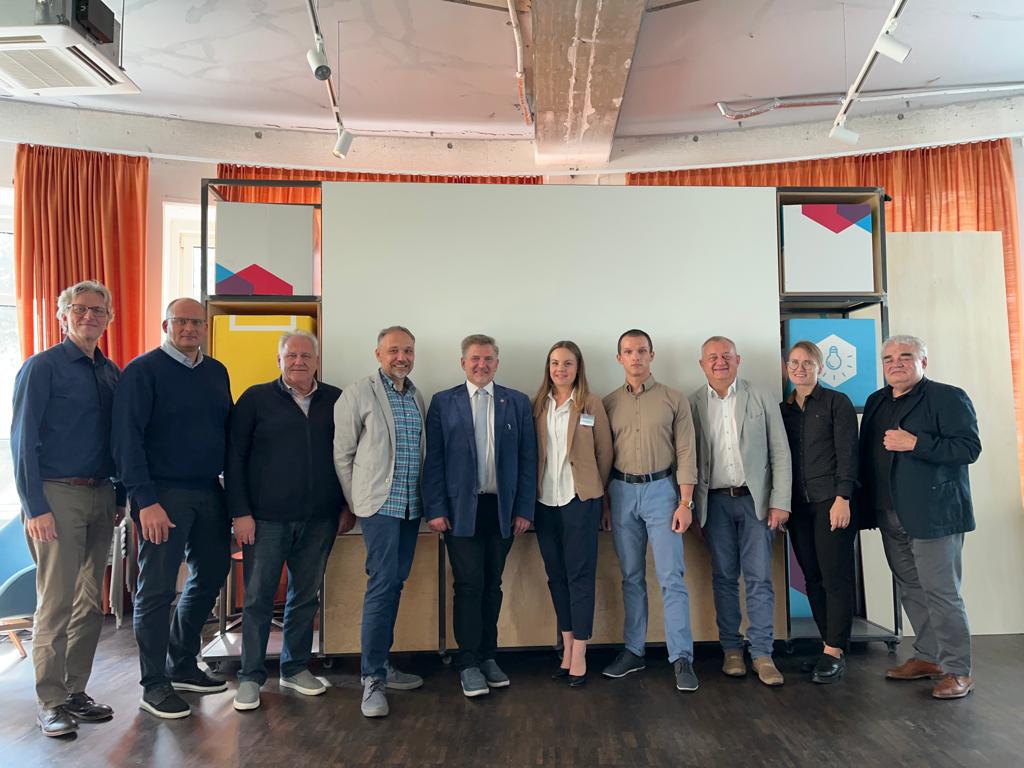On 6 and 7 September 2022, the Final Conference of the project "CLI-MA - From Property Manager to Climate Manager" funded by the European Climate Initiative (EUKI) took place in Berlin. The project partners from Poland (Energy Conservation Foundation, FPE), from Latvia (Riga Technical University, RTU) and Germany (Housing Initiative for Eastern Europe, IWO) took stock of what had been achieved during the project period from 2020-2023 under the motto "Managing the way towards a climate-neutral building stock". As part of the agenda, the conference participants discussed which measures are necessary and feasible in the countries according to the new guidelines on minimum standards for building energy performance in order to achieve the European goal of a climate-neutral building stock in 2050.

Rutger Broer from BPIE (Building Performance Institute Europe) started by informing about the new EU directive on minimum standards for building energy performance. He focused on the implementation of the EU policy in the member states. With the last amendment of the Building Directives, the EU lowered the minimum standards and thus omitted greater leeway for the countries. However, there are already examples from the Netherlands or France where the minimum standards are much higher than the EU requires. Now, however, it is clear that a stronger political will is needed to achieve the ambitious goals of a neutral building stock. Presumably, pressure will grow on housing companies, administrations and owners to implement such measures in order to increase building energy performance.
The RetrofitHUB project, presented by Anna Šenhold from the Croatia Green Building Council, deals with energy efficiency measures in buildings in Croatia, Poland and Hungary. There, too, the aim is to make the housing stock climate neutral. In contrast to the CLI-MA project's approach of training housing managers on energy efficiency measures, this project uses a bottom-up approach and aims to strengthen this knowledge among the residents. They are the ones who finance such measures as owners and have to be convinced of them in order to decide to do so in the end. The more the residents themselves know about possible renovation measures, the higher RetrofitHUB believes the chances are that measures will actually be adopted and implemented in the end.
All stakeholders, from owners to housing managers, need to be made more aware of the benefits of energy efficiency measures and why it is important to strive for higher energy standards. Of course, in the end it is and remains a financing issue. The owners in homeowner associations in Eastern European countries often belong to the low-income group or are often self-employed and cannot afford such large investments. Therefore, it is all the more important to address these private owners with the right arguments and proposals. The CLI-MA project has developed curricula for further education programmes that impart this knowledge both in Poland and Latvia. The exchange among the conference participants showed that such training programmes can be helpful not only for housing managers but for all people involved in the renovation process and that they would also have a great potential in other countries.
The final conference took place in Berlin, Germany, where ownership structures in multi-family houses are mostly different from those in the project countries. The cooperative model was presented as one of the most successful structures for housing management. Tilman Stoß, responsible for digitisation, innovation and sustainability at the Berliner Wohnungsgenossenschaft 1892 eG presented the cooperative model as a sustainable model for housing management and administration to the international audience. In doing so, he showed that, in contrast to the way many housing companies think, this model not only works nationally, but also in an international network.

LiM (Living in Metropolises) is the first European cooperative that has already implemented a building project in Berlin and is already planning two more in Finland and Latvia. Stoß sees the implementation of the cooperative model in Eastern European countries, where a large part of the housing stock was privatised and put into the hands of the residents after the collapse of the Soviet Union, as an opportunity to jointly finance and implement energy efficiency measures in these home ownership structures. Stoß then invited the participants to visit the area Nettelbeckplatz in Berlin, which is part of the 1892 eG portfolio. There, the guests were able to learn about sustainable measures in a renovated apartment block and a combined new building. These include landlord-to-tenant electricity supply through photovoltaic systems on the roof, tenant gardens, guest flats, an underground car park and communal rooms. The mix of flats for students and pensioners contributes positively to the tenant structure. The implemented measures contribute to the well-being of the residents and benefit them. The residents, who are both tenants and owners, are at the centre of the cooperative's interests and thus of the housing and building management. One of Berlin's oldest cooperatives shows how sustainable, energy-efficient and attractive housing can remain successful but still affordable through smart and also non-profit-oriented management.
The aim of the CLI-MA project is to use the German Association of Property Managers' (Verband Deutscher Immobilienverwalter e. V.) tried-and-tested climate manager training course as a basis for developing equivalent further training courses for housing managers in Poland and Latvia. This is intended to strengthen the housing managers’ knowledge of possible energy efficiency measures in both countries. The project partners FPE and RTU have created country-specific curricula based on the German course and successfully conducted the first pilot trainings in early 2022. This further training is to be implemented in both countries as one part for more energy efficiency.
The Energy Conservation Foundation (FPE) promotes the education and training of energy advisors and professionals in the field of energy efficiency in Poland. Through training, publications and consultations, they create public awareness for energy efficiency measures in the building sector.
The Riga Technical University (RTU) is responsible for the mandatory education and training of housing managers in Latvia. Energy efficiency measures are becoming increasingly important in view of European and national climate strategies.
The German partner Housing Initiative for Eastern Europe (IWO) is committed to development aid and environmental protection. Its projects and activities contribute to market-based structures in the housing and construction industry in Eastern Europe, Central Asia and the Caucasus.
Contact for further information:
IWO Project Manager Inga Rovbutas (rovbutas@iwoev.org)
IWO Project Assistant Franziska Reute (reute@iwoev.org)

